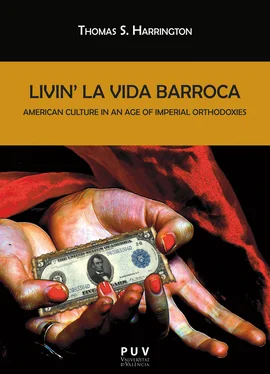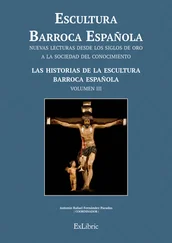The major concern of the Revisionist Zionists cum Neo-Cons at this point became the Peace Treaty signed by Rabin and Arafat in late 1993.They understood quite rightly that if it were allowed to go into full effect, it would spell the end of the core Revisionist Zionist mission of having Israel occupy ALL OF THE “HISTORIC LANDS” OF ISRAEL ON BOTH SIDES OF THE JORDAN RIVER.
So the now well-installed members of the Washington media elite, in coordination with their friend and intellectual first-cousin Netanhyahu—ever mindful of fulfilling his father’s dreams—, went to work on undermining compliance with the treaty and portraying it in the US media as a sellout for Israeli interests. It was in this context that Netanyahu authored the book Fighting Terrorism: How Democracies Can Defeat Domestic and International Terrorists he is promoting in the Charlie Rose clip mentioned above.
In the interview, and even more so in the book, you will hear spelled out most of the conceptual building blocks of what was later to become the US “War on Terror.”
A more synthetic rendering of the vision can be found in the “Clean Break” paper” written a year later (1996) as a policy blueprint for Netanyahu’s incoming Prime Ministership by a team which included Feith, Perle and the husband and wife team of David (Heritage Foundation) and Meyrav (founder of MEMRI and the author of a Ph.D. thesis on Revisionist Zionism) Wurmser, which highlighted the need to engage in pre-emptive strikes against Iran and Syria, remove of Saddam Hussein from Iraq and the abandon of traditional “land for peace” framework for negotiations with the Palestinians.
Humm. Sound familiar. It should.
This is exactly the plan rolled out within days of the attacks of September 11th when all of the people mentioned above, except for Meyrav Wurmser (plus likeminded pro-Likudite figures such as types like Abe Shulsky. Eliot Cohen, Dov Zakheim and numerous others), had key positions in the Bush administration, having been invited in en masse by Dick Cheney.
Does anyone else remember the visit to Washington of Netanyahu two weeks after September 11th? He was greeted by official Washington as a hero and gave a speeches before Congress and in official Washington in which, barely hiding his glee, he advocates the need to pursue the “War on Terror” and how, thankfully, the US and Israel were now all in this together.
Mission accomplished. The US and Israel were now joined at the hip on the basis of a lunatic paradigm, the “War on Terror” Netanyahu and his friends developed as a way, first and foremost, of pursuing Revisionist Zionism’s expansionist dreams.
If there is any doubt take a look at the video, with accompanying English transcript ( https://www.youtube.com/watch?v=l9dLTOd3V-Y), of Netanyahu holding court among West Bank settlers and bragging about this ability to manipulate the American into doing his bidding. The clip was filmed mere weeks before we signed on to his “all for one and one for all” dream of endless war on people who are rightly his enemies but not necessarily ours.
Future historians will marvel at these developments and wonder how the world’s most powerful nation allowed it to happen without any serious public debate or reaction.
7 November 2010
Necessary Melancholy?
Not long ago, I read an interesting interview in the Uruguayan press with the Irish writer Mary Kenny. In it, she speaks about reclaiming the right to be sad in a culture that has increasing come to see a person’s lack of happiness in pathological terms.
She is no denier of the reality of clinical depression. Rather, she seeks to recover the ability to, at least in some degree, posit the existence of melancholy within an existential framework, or put more simply, in the context of the fundamental difficulty of life.
Might she be on to something? Have we lost, or are we losing, the ability to frame our struggles in light of the fact that outright bliss and calm have always been fairly scarce goods in human life?
To what extent is consumer culture’s need to sell us solutions for our problems play into a framing of life that posits sadness and struggle as anomalous human conditions?
And finally, to what extent might the insistence on maintaining a positive attitude, and thus expressing our analyses of the world in upbeat practical terms possibly rendering us immobile before true threats to our physical (the destruction of our natural environments) or moral (the mass displacement, torture and killing of people being carried out in our names) existence?
10 November 2010
Where We Are: America the Baroque
The term Baroque was coined in the Iberian Peninsula—it is said to come from the Portuguese term for deformed pearl—to speak of the ornate cultural products generated in Spain and Portugal during the time when both nations (they were actually joined dynastically between 1580 and 1640) were simultaneously great powers and societies in the throes of self-evident decline and social dislocation. Give or take a few years, the esthetic had its heyday in those places in the period between 1580 and 1700.
During this era, the Iberians were engaged in two grand enterprises. One was running their vast seaborne empires. The other was waging an ideological and military struggle—the Counterreformation—against those who were challenging Catholicism’s long-standing role as the prime definer of Europe’s social matrix.
It has been said that the Baroque sprang from the need, which arises in all perpetually warring cultures, to restrict the normal flow of reasoned thought and cultural energy in the society.
Perhaps the best way to visualize the phenomenon is to think of what happens when you try to direct a fluid flow of great force into a very small opening. Some water will be passed through the tube. But an equal amount will spray out in random torrents at the place of input.
Those interested primarily in esthetics can, and will, make the case that the torrents of water shooting from the place of the undersized opening are quite beautiful, especially when the light of the afternoon sun shines through them.
However, no serious engineer would ever say that arranging water flows in this fashion is the most efficient way to direct the water to where you want it to go.
We are a Baroque society.
The flow of ideas into our public square is heavily mediated by an implied demand to accept certain core assumptions. Among these are the beliefs that a) nothing can challenge the unregulated market when it comes to providing the best quality of life for the most amount of people b) the world is replete with military and insurgent actors bent on “taking us down” and c) what is good for Israel is good for the US.
The person who fails to acknowledge the “inherent” truth of these orthodoxies is quickly labeled as “naïve or “unserious” and is banished from any significant role in the opinion-making or policy making apparatus of the nation. As a result, the country has no ability to engender and sustain a free-ranging, outcomes-focused conversation about our most pressing social and political problems.
Knowing this but still squeamish about acknowledging it, we have, like the inhabitants of imperial Spain and Portugal before us, learned to cover up the tragedy of our own impotence by basking in largely peripheral esthetics. We celebrate black presidents for their blackness and alleged intelligence and style while largely ignoring whether they have a moral compass, or a the ability—which is about the least one can ask of a person entrusted with such immense power—to sketch out a compelling vision for the future of the nation.
Ours is a society in which the crafty and articulate temporizer has much more social cache than the speaker of plain truths. We call the first thoughtful, reasonable and well-balanced. The second is inevitably described as rash, negative or unrealistic, even when his or her grasp of observables is clearly more detailed and historically-informed that that of the former
Читать дальше












![Johann von Goethe - [Einleitung zu:] Thomas Carlyle, Leben Schillers](/books/747389/johann-von-goethe-einleitung-zu-thomas-carlyle-thumb.webp)